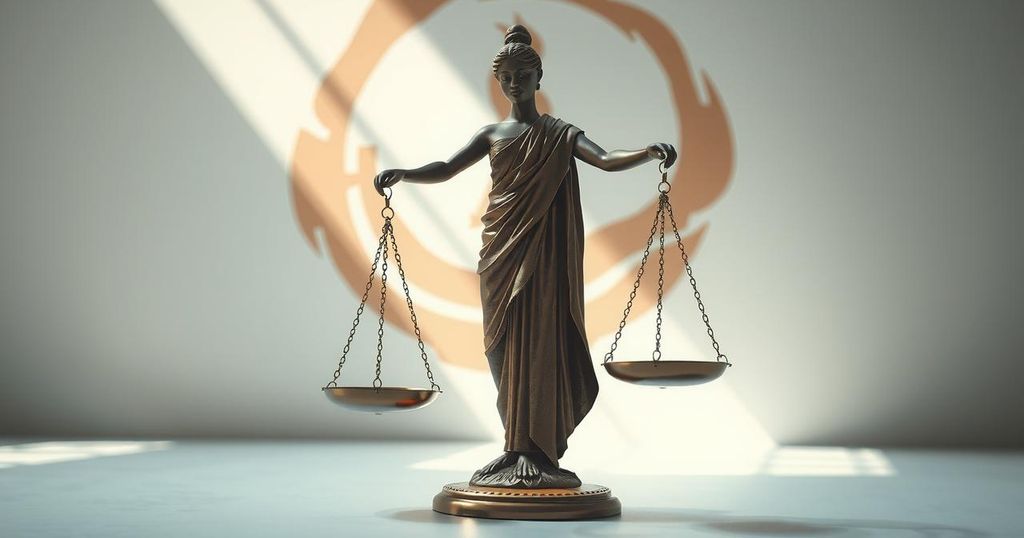Urgent Call for Reform: UN Review Highlights Egypt’s Human Rights Crisis

Human Rights Watch urges the Egyptian government to take immediate action on UPR recommendations addressing severe human rights violations. Despite the Egyptian government’s claims of progress, ongoing repression against critics persists. The UPR highlights Egypt’s dismal record, with a call for meaningful reforms and a commitment to uphold international human rights standards.
The Egyptian government is urged to promptly implement recommendations made during the January 28, 2025, United Nations review concerning its human rights record. The Universal Periodic Review (UPR) involved 137 countries offering over 370 recommendations addressing critical issues such as torture, arbitrary detention, and access to education and healthcare amidst ongoing repression and a human rights crisis in Egypt.
Amr Magdi, a senior Middle East and North Africa researcher at Human Rights Watch, emphasized that governmental public relations efforts cannot alter the grim reality of Egypt’s human rights situation. He added that the authorities need to focus on actionable reforms that require political commitment rather than financial resources. The UPR is conducted every four and a half years and allows for contributions from various entities to inform the evaluation process.
Since its last UPR in 2019, Egypt has shown minimal progress in improving human rights, according to Human Rights Watch. The government, led by President Abdel Fattah al-Sisi, continues to suppress peaceful dissent, with detentions escalating far beyond the recent release of some political prisoners. Reports indicate systemic abuses, torture, and prolonged incommunicado detentions remain prevalent.
Egypt has seen a troubling increase in death sentences and executions, often stemming from mass trials that lack fairness. The economic crisis, punctuated by rising inflation, has worsened poverty, adversely affecting access to essential needs. The government’s allocation of resources to education and healthcare remains insufficient, leading to inequitable service access.
During the UPR session, Egyptian Foreign Minister Badr Abdelatty failed to acknowledge any abuses while claiming progress in various domains. However, prior to the review, the authorities escalated their repression against rights defenders and journalists. For instance, Hossam Bahgat faced terrorism-related charges just days before the UPR, highlighting the regime’s ongoing suppression.
Prominent human rights lawyer Houda Abdelwahab continues to face charges and a travel ban since 2016, which stem from a long-running investigation into foreign funding. Recent detentions included journalist Ahmed Seraj, who was charged related to an interview regarding the plight of his detained wife, showcasing the crackdown on dissenting voices.
Multiple activists remain in exile, fearing reprisals upon return, while families of dissidents abroad are also subjected to harassment. The government continues to target marginalized groups using vague legal justifications. International participants at the UPR have called for the unconditional release of detained human rights defenders based on their peaceful expressions.
As the Egyptian government prepares for the 59th session of the Human Rights Council in June, it must indicate a willingness to enact the suggestions from the review. Magdi reiterated that the authorities must prioritize immediate reforms, such as releasing unjustly detained individuals and revising oppressive laws to comply with international obligations.
The Universal Periodic Review (UPR) is a human rights mechanism established by the UN in 2006 that evaluates each member state’s human rights record every four and a half years. Egypt, under President Abdel Fattah al-Sisi, has faced extensive criticism for its human rights abuses, including systemic detentions of critics, violations of free expression, and an insufficient commitment to addressing poverty and healthcare access. Recent actions by the Egyptian government have raised serious concerns within the international community regarding its treatment of activists and adherence to human rights standards.
In light of the recent UPR findings, the urgent need for Egypt to address its human rights shortfalls is clear. The country’s government must take actionable steps to implement the recommendations provided by the UN, focusing on accountability and justice for detainees while enhancing public access to essential services. The international community is positioned to pressure Egypt towards these reforms, holding it responsible for its human rights obligations.
Original Source: www.hrw.org








